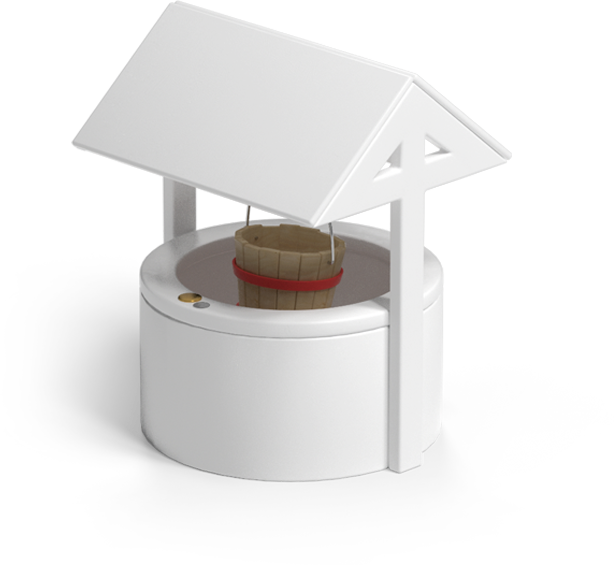How To Find Tenants for Rental Properties
It might sound obvious, but there is very little point in owning a rental property if you haven’t got any tenants for it. And finding tenants might not be as easy as you think. So how do you find tenants? And how do you find the right tenants?
By Jon Howe6/12/20

As a start-up landlord just taking your first step into the world of rental property, it is important to establish a profile of the kind of tenant you want, as the property you own will be geared towards a certain demographic.
This could be down to location, property size or property style, but you will be unlikely to find a family of four to take on a small one-bedroom flat in the city centre, and likewise a struggling student won’t want a lavishly furnished three-bedroom semi in the suburbs. Or at least they won’t be able to afford one.
So first things first, identify your target market and make sure it’s a realistic target in relation to the property you own. Then the path to finding the ideal tenant will become much easier. As a UOWN investor, the hard work in terms of finding tenants is done for you, and as a private landlord it is possible to employ a property management company or a letting agent to find your tenants and manage them.
But of course that comes with a cost, and may not be as carefully screened or vetted as you would like, so if you are self-managing your properties there are some key tactics you can use.
Benefits of having a fully-tenanted property
The main benefit of having optimal residency in your property, is the fundamental concept of income. As a landlord you need the regular income to cover initial costs such as refurbishment costs, legal fees and stamp duty, as well as your first mortgage payments. For most landlords this is critical, and any time a room or property is empty you are losing vital income.
This is where any delays in getting a property into a ‘rentable’ status can be costly, and is also why many landlords of student properties insist on tenants paying rent during holiday periods when they might not even be living there.
Other benefits of having tenants in a property are security, ie. ensuring a property is not empty for prolonged periods, being able to report maintenance issues (a leak that develops in an empty property can cause serious problems even if it is only empty for a week) and acting as good advertising.
In a shared property where several individual rooms are for let, it doesn’t look good if some are empty. A prospective tenant will wonder why you can’t let the property and it will set alarm bells ringing.
What makes an ideal tenant?
We read a lot about bad landlords who withdraw portions of a deposit for no good reason, who don’t respond to requests for repairs and maintenance and who are very hard to locate or contact.
But on the flipside, there are some bad tenants too. The typical image of a landlord might be a little bit unfair, when the vast majority are honest, hard-working and fair and are helpful and respectful of you and the property.
The same can be said for tenants, some can be troublesome, but most are absolutely fine, so you need to identify what you need from a tenant and what you should look out for in their background and character.
Pre-tenancy checks
When you first meet a prospective tenant you can establish through references whether they have a stable job with a steady income. The ideal tenant should also have no criminal record, a good credit history and be forthcoming with any documentation you request.
You could also try to establish if the prospective tenant has any long term plans. Most tenancy agreements are for 12 months, but it would help you as a landlord if they intimated a verbal commitment to stay long term. Straight away this tells you a lot about them and puts your mind at ease.
Pay rent on time
This is important to a landlord for obvious reasons, but the ideal tenant will be punctual and consistent with their rental payment. In return, a landlord might be more likely to carry out repairs a bit quicker, or spend a little bit on improving the property.
If a tenant doesn’t pay rent at all or is consistently late, this is a breach of the tenancy agreement and won’t help resolve any disputes between the tenant and landlord. If a tenant doesn’t pay it gives them less power in settling disputes and getting assistance from local authorities also. A landlord can also evict a tenant through a possession order if they persistently don’t pay their rent.
Communication
A good tenant will contact the landlord if there are problems. This could be with rent or repairs. If there are genuine issues with paying rent, a landlord may be understanding and allow this to be delayed for a specific period of time. But it is much better to be honest and to tell the landlord before a crisis point comes.
The same goes with repairs and maintenance to the property. If the tenant has broken something, it is better to be honest about it, and likewise, the tenant has a responsibility to report leaks or bigger issues, as the landlord isn’t there to see it. A good tenant will also ask permission before decorating or carrying out more major repairs, ie. anything that could leave a permanent mark on the property.
Flexibility
A tenant has a right to peace and quiet and a landlord cannot interrupt or visit the property without warning, but equally, the tenant must make the property available for repairs and maintenance to be carried out.
Taking care of the property
The tenant doesn’t own the property, so they should be respectful in terms of hygiene standards, tidiness and public nuisance with regards to noise and the state of the garden etc. Getting on with neighbours is always helpful for the landlord.
Also, a good tenant will look after very basic maintenance tasks themselves, such as changing lightbulbs, keeping the garden tidy, bleeding radiators or dealing with a small patch of mould in the bathroom or kitchen before it gets worse.
Read and respect the tenancy agreement
A good tenant will read the tenancy agreement before signing it and therefore know what they can and can’t do. This tends to help avoid a lot of issues during the tenancy.
The process of how to find good tenants
The best way to find good tenants for rental properties is to follow a certain path as laid out here. There are very few shortcuts, particularly if you are new to the private landlord and buy-to-let business, and the key is to open up your property to as many viable people as possible, in terms of your target market, but also through advertising mediums and the standards and general appeal of your property.
In essence, you need to lead people to your property and manage the situation in order to attract the right kind of tenant. There are also legal obligations you need to be aware of, but generally-speaking, the process of how to find a good tenant goes like this:
- Market the property – agree a target market and rental price range
- Advertise the property – find the most effective mediums
- Prepare the property – dress the property and carry out your legal obligations
- Viewings and references – find a system to ensure only suitable people have viewings
- Contracts – get legal help to prepare suitable contracts
- Deposits – prepare a method for protecting the deposit and a criteria for repaying it
Tactics for finding the right tenants
Once you decide to self-manage the process of finding the right tenants for your rental property, you can assess the process as outlined above and prepare for it. There are various recommendations that will eventually come naturally as you gain experience in the rental market, but for now it could save you a lot of time and lost revenue if you take heed of the following tactical advice, which should lead to you finding tenants for your rental property sooner rather than later.
Set a realistic asking price
Don’t be greedy, research the going rate for the area and pitch your price slightly lower. This will attract more tenants who will think they are getting a bargain, as even a slightly lower price will always stand out.
Don’t alienate people
At least at first you can’t afford to turn potential tenants away and discriminate against people like DSS tenants, or people with pets. Turning away a dog lover immediately shuts off a huge percentage of the tenants market.
Pitch to your target audience
If your property or its location is ideal for a young professional, a family or a group of students, then let them know in the blurb. There is no harm in putting “this property is perfect for….” as long as you have pinpointed the right demographic.
Use online advertising mediums
The big name property websites are RightMove and Zoopla, these will literally open you up to millions of potential tenants, but they only deal with online agents, so you will have to pay a small fee of around £50 to get an online agent. It is worth it for the potential reach these sites can offer you, but there are free alternatives such as Houseshop. This is free to list but does not achieve the same level of traffic. Gumtree is also free and very popular, but of course is not specifically a property website.
Use social media
Everyone has an audience on social media, and you can tap into that audience to get your property tenanted. You may score success by simply communicating over social media that you have a property available to rent. You can also delve into any relevant local group and community pages.
For the more marketing savvy, you could even set up targeted adverts through various social media platforms such as Facebook, Instagram, and Twitter, ensuring you’re attracting the people you deem to be the perfect tenant, whether that be students, young professionals, or a family.
Use the local area
There is nothing wrong with using community information boards in the proximity of your property, or post office notice boards, or information boards in supermarkets. If you are in a student area then the local college will have ‘approved property agents’, so you should get yourself approved and on the list. You can also advertise inside the college itself. The old fashioned ‘room to let’ or ‘property to let’ sign in the window is surprisingly effective too.
Don’t rule out word of mouth
Speaking to the neighbours or local people can help spread the word of your property availability as well. A network of people can soon be built up and it is amazing how often this can work. Know of a friend of a friend that’s looking for a place to rent? There’s no harm in asking to see if they’re interested in becoming a tenant in your property.
Be descriptive in adverts
People need as much information as possible, so sell the property as if you were actually selling the house. How many rooms, features, driveway, garden, broadband etc. Mention local amenities and transport links too, for people who may not be familiar with the area.
Use photography
A rough room layout plan is useful to include in an advert but use photography well also, as this is the perfect way to ‘sell’ the property, its charm and its contents. Be sure that any photographs are high quality and clearly show the features of the property and its rooms.
Photos are usually the first thing a potential tenant will see whilst property hunting, so it pays to put in the effort and capture their attention early on.
Don’t be afraid to incentivise
A tactic to adopt at some point, but not necessarily straight away. You could offer a discount on the first month’s rent if people sign up before a certain date, or you could offer to cover a month of broadband free or even buy a new telly. This may seem like another cost you could do without, but if it gets a tenant in quicker, it could get you a month or two weeks of rental income you wouldn’t otherwise have had.
Get legal
You have legal obligations as a landlord which you need to get on top of, and which can be used as a selling tool also. These include getting a gas safety certificate for the property, getting an electrical safety certificate, getting an Energy Performance Certificate and fitting Carbon Monoxide and Smoke alarms.
Prepare for viewings
Same as for selling a property, make sure it is clean, tidy and shows off its best assets. It’s possible for a property to look great on paper, but if the viewing doesn’t go smoothly the potential tenant’s interest will be lost straight away. Make sure that the property gives of a homely and welcoming atmosphere whenever you have a viewing scheduled.
Screen prospective tenants
This can save you a lot of time and hassle. You can email people a tenant application form and use that to sift out people who are immediately unsuitable, without being discriminatory. Or you could chat on the phone if that is easier.
Do viewings yourself
This may seem like a pain, but it will give you the best chance of assessing a prospective tenant and whether you can trust them. Make sure you know the property inside out and be honest with your answers without trying to hide anything. This will definitely come across and could lose you a tenant. Make sure you ask questions of them too.
Get your references
Any tenant will be expecting this, so don’t be afraid to ask for references. Chiefly you need an employment history, a rental history, a credit rating and you need to check out their right to rent, assuming they are over 18 years old. You have a legal obligation to do this.
Prepare a contract
You may need professional legal assistance with this, but in most cases you will need to prepare an Assured Shorthold Tenancy Agreement. This effectively sets out the role and responsibilities of both the tenant and the landlord, and lays out the terms of the agreements and any specific rules and restrictions. The agreement is legally binding when signed by both parties.
Take and look after the deposit
This should be taken before the tenancy begins, but effectively safeguards both the tenant and landlord against breaches of the tenancy agreement. The deposit must be held in a Government tenancy deposit protection scheme.
Finding good rental tenants: hard work, but worth the effort
There is a lot to remember and prepare for when looking at how to find tenants, but the initial work is worth it if you find a suitable tenant who then becomes a stable and reliable source of income.
This can help you cover your initial set-up costs and, much like investing in property crowdfunding with UOWN, is a pathway that will possibly allow you to build a healthy and manageable property portfolio in the longer term. But this is dependent on having regular and reliable income streams, so getting the right tenant and fully utilising the potential of your property is the key to that.
Take a look at our other articles




